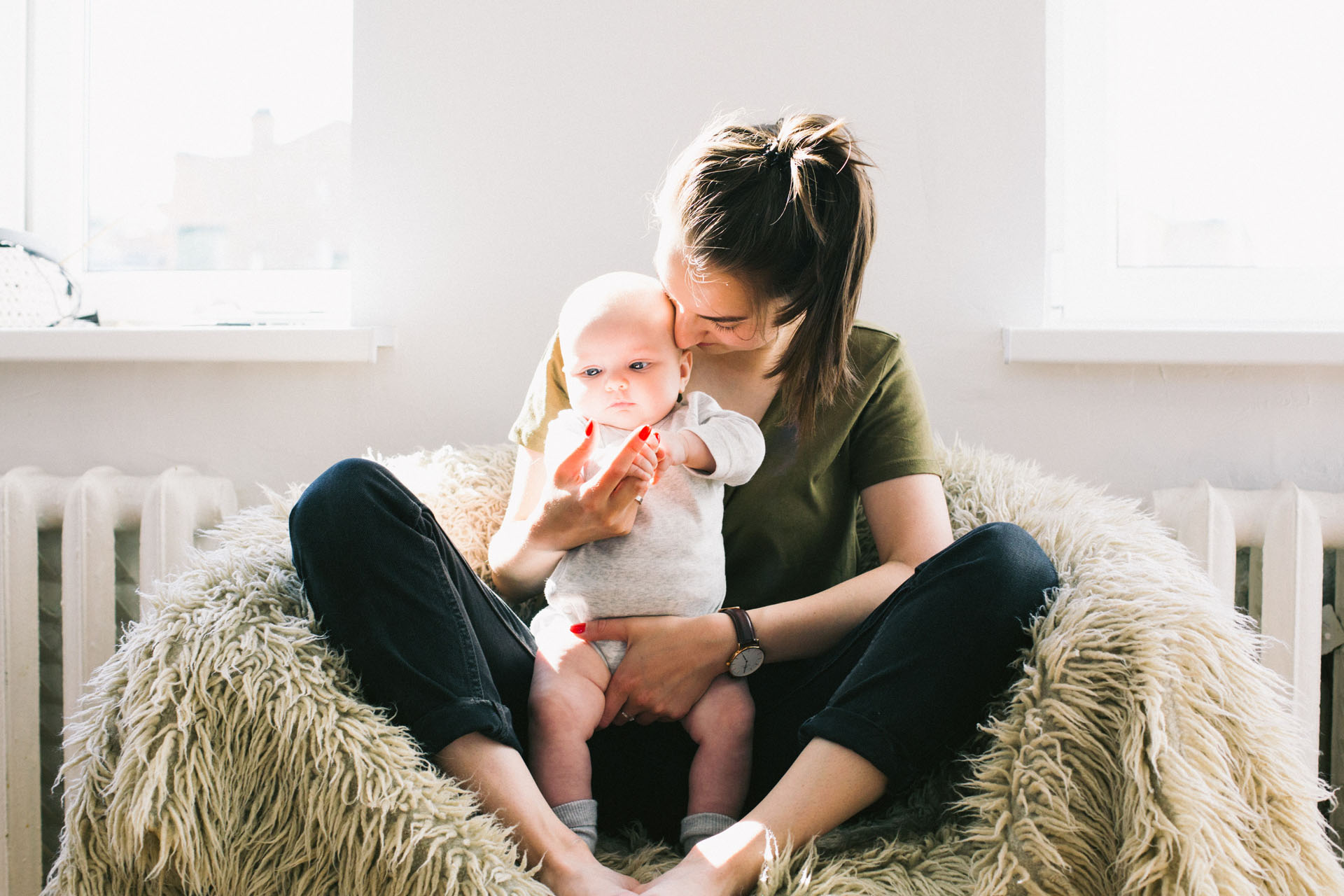Baby
4 min Read
Is baby talk good for babies?

July 24, 2023
Baby
4 min Read

July 24, 2023

Almost as soon as my son was born, I felt my voice go up an octave. My normal tone had been replaced with a high pitched ‘sing-songy’ one. I used shorter phrases, longer vowels and exaggerated pitch contours when speaking directly to him. This type of speech is referred to by speech-language pathologists as “infant-directed speech”, though most of us know it as “baby talk”.
It seemed almost instinctual to switch into this pattern of speech as soon as I was talking with my baby, though not all women find it so easy. Lynn Carson, a Toronto-based speech language pathologist, says she’s met many mothers who think baby talk sounds, well, stupid. When giving a talk about the benefits of infant directed speech, Lynn recalls one mom saying,
“ ‘So, you want us to act like idiots when we talk to our babies?’ I’d never heard someone put it like that, but for some women, it’s really uncomfortable,” she says. You may think you sound ridiculous, but there are many benefits to using baby talk.
“As soon as babies are born, they begin to learn language mainly through the back and forth interactions they have with adults,” says Lynn. Babies seem to prefer this melodic form of speech, plus “baby talk” helps babies tune into you. “They’re going to look at you longer, they listen to you longer, so they’re going to get that language input longer,” says Lynn.
A 2014 study by researchers at the University of Connecticut and the University of Washington found that the more exaggerated the vowels and pitch contours— “Look at your tiny tooooes!” —the more responsive babies were to the speech. These ups and downs in our tone help babies know when words start and stop so they can locate individual words in your speech. By age two, babies who had been exposed to more baby talk knew more words than those whose parents didn’t use baby talk.
Although baby talk certainly has language benefits, we don’t need to speak like this all day long. “You would just go bananas,” says Lynn. But there’s also a scientific reason for not speaking in baby talk all day long. One study showed a combination of infant-directed speech and adult-directed speech was best for language development. This is good news for dads, who often find it difficult to use baby talk. “It seems to come more naturally to moms,” says Lynn. Providing baby with a variety of language experiences may be the key to optimizing language acquisition.
Lynn says the best time to use baby talk is when you’re playing with your baby or when you have your baby’s attention, such as when you’re feeding or changing their diaper. “Whenever they want to engage with you, that’s the best time to use baby talk,” says Lynn. “They will be more attentive to you, they will look at you longer so you can keep that interaction going longer,” she says.
Once your baby is forming sentences, though, Lynn says you can ditch the baby talk and speak in your normal tone of voice. By this age, kids can hear the difference between consonants and vowels and no longer need to rely on the lyrical patterns of baby talk to distinguish them.
Although infant-directed speech has some amazing benefits for language acquisition, not all baby talk is effective. Follow these guidelines from speech-language pathologist Lynn Carson:
Use here-and-now language
Use simple sentences that are in the here-and-now. If you’re at the grocery store, for example, you might say ‘see the apple? That’s a red apple.’ Saying ‘See that apple? Mommy eats apples for breakfast’ isn’t as effective since you aren’t eating breakfast in that moment.
Get up close and personal
Look at your baby, bringing your face close to his when engaging in baby talk. You’ll find your baby pays attention to you longer and may coo or gurgle, imitating your speech.
Take baby steps
If baby talk doesn’t come naturally, don’t fret. Instead, find time to engage in baby talk for just a few minutes a day, then find another. If you still find you feel uncomfortable, don’t do it. Baby talk is just one feature of language learning. If using baby talk is really going to hinder your conversation and make you not want to talk as much, then it’s not the tool for you.
Originally published in ParentsCanada magazine, October 2015.